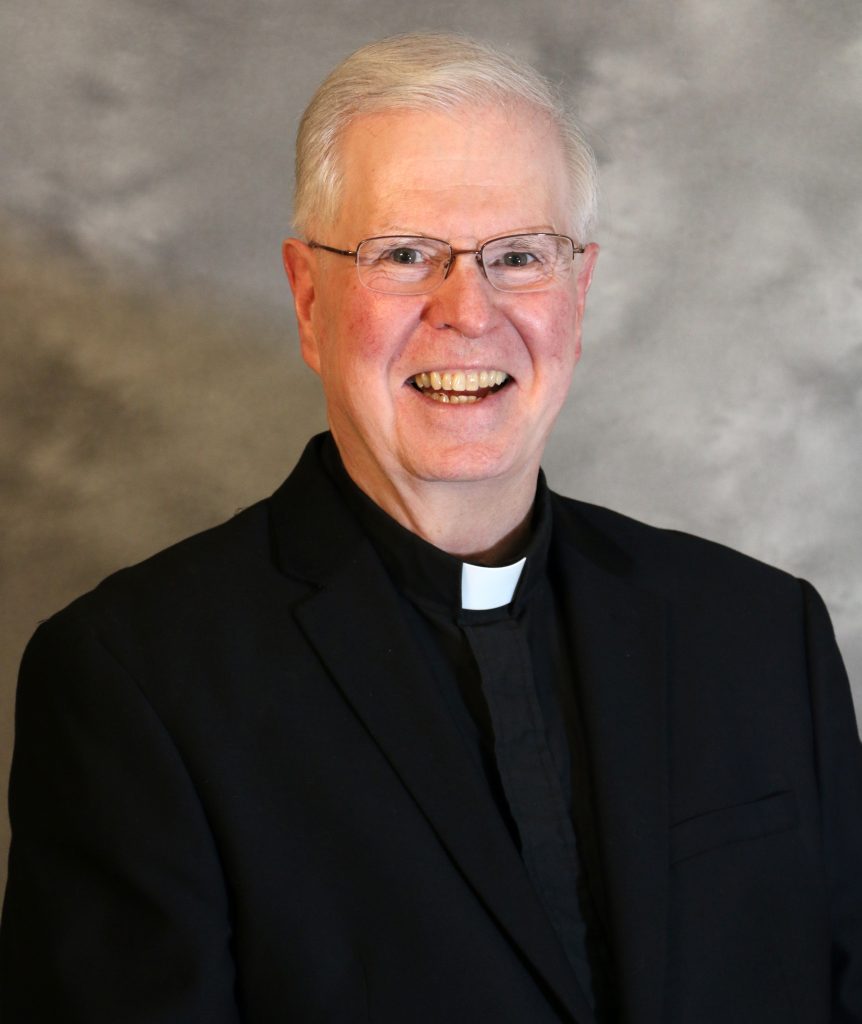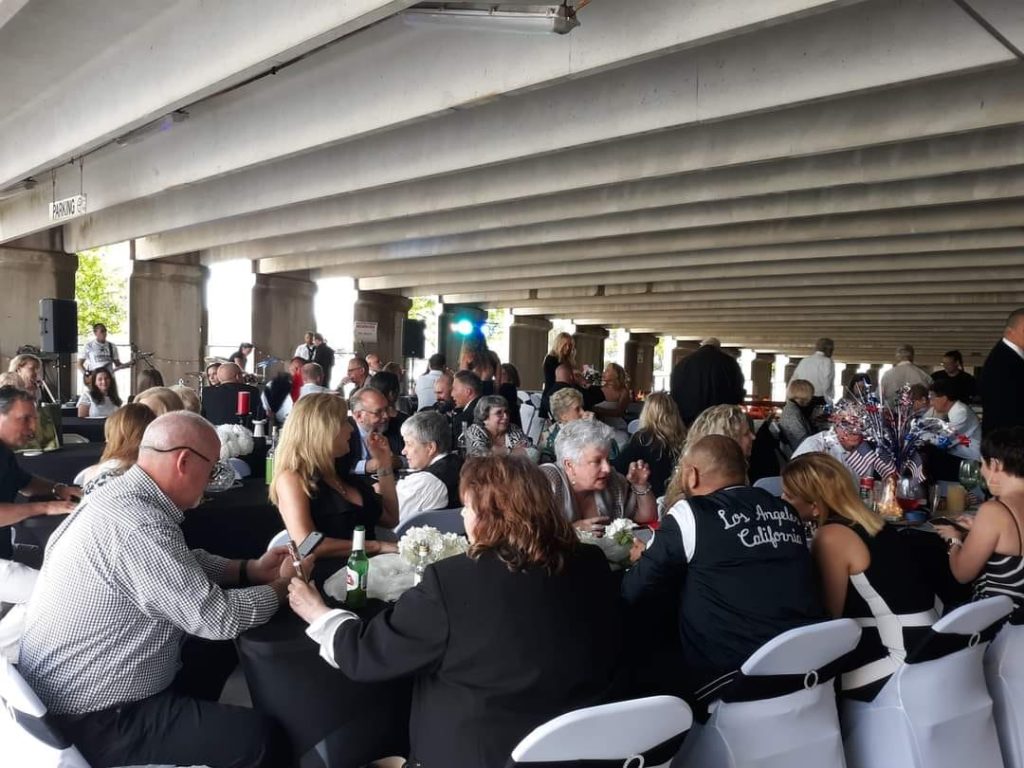 HAZLETON (June 18, 2024) – On Friday, June 14, 2024, more than 75 people came together in Hazleton to enjoy ‘A Night Under the Stars,’ an event organized by Catholic Social Services of the Diocese of Scranton.
HAZLETON (June 18, 2024) – On Friday, June 14, 2024, more than 75 people came together in Hazleton to enjoy ‘A Night Under the Stars,’ an event organized by Catholic Social Services of the Diocese of Scranton.
The Power City Parking Lot provided the unique setting for an unforgettable evening of joy, which featured food, music and dancing.
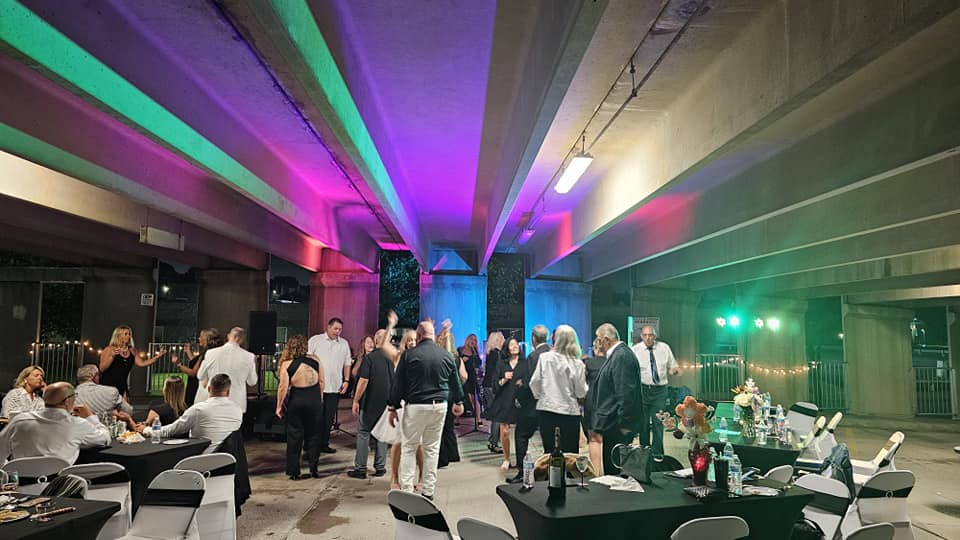 Attendees were treated to a four-course meal at the event, which included entertainment by ‘Six Shots.’
Attendees were treated to a four-course meal at the event, which included entertainment by ‘Six Shots.’
Proceeds from the event will be used to support the mission and services provided by Catholic Social Services, including Saint Joseph’s Food Pantry, Divine Providence Emergency Shelter and the Bridge to Independence Program.
“We are thrilled by the overwhelming response to ‘A Night Under the Stars,’ Danielle Matarella, Greater Hazleton Director of Catholic Social Services, explained. “It was wonderful to see people come together to enjoy a wonderful meal and fellowship. This event truly encapsulated the essence of our community.”
The success of ‘A Night Under the Stars’ would not have been possible without the generous support of many community sponsors and the hard work of dedicated volunteers and staff.
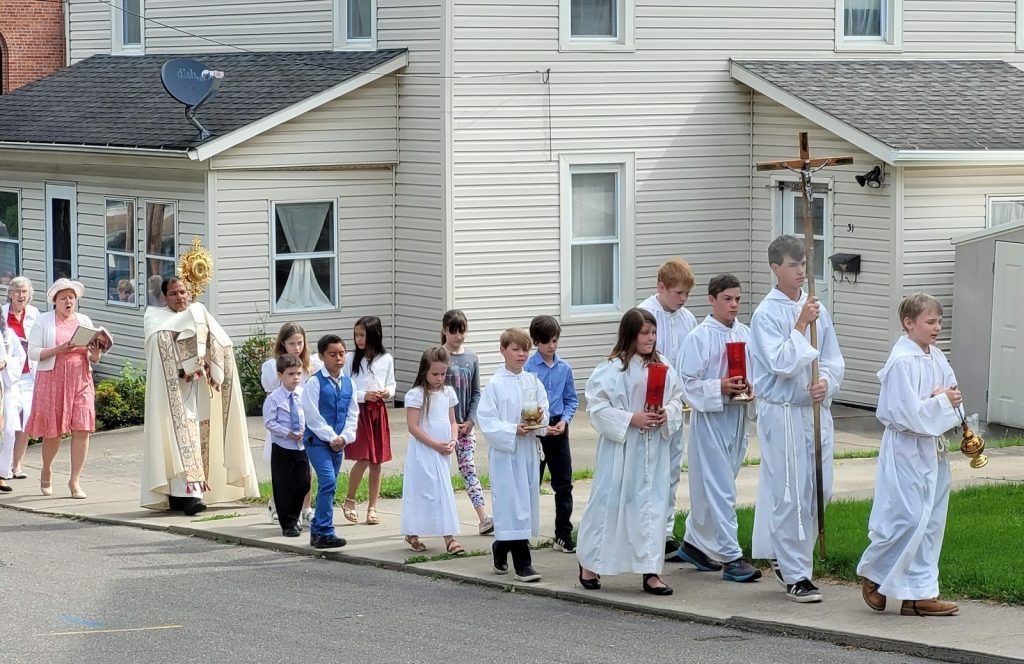 On the Feast of the Most Holy Body and Blood of Christ (Corpus Christi Sunday) after the 9 AM Mass, Father Joe Jose Kuriappilly, Pastor led a procession with the Blessed Sacrament from SS. Peter and Paul Church in Towanda to the Grotto Shrine.
On the Feast of the Most Holy Body and Blood of Christ (Corpus Christi Sunday) after the 9 AM Mass, Father Joe Jose Kuriappilly, Pastor led a procession with the Blessed Sacrament from SS. Peter and Paul Church in Towanda to the Grotto Shrine.
The parishioners returned to the church for Benediction. First Communicants participated in their First Communion outfits. This was a commemoration of Jesus’ Last Supper with his Apostles honoring the Lord’s presence in the Blessed Sacrament.
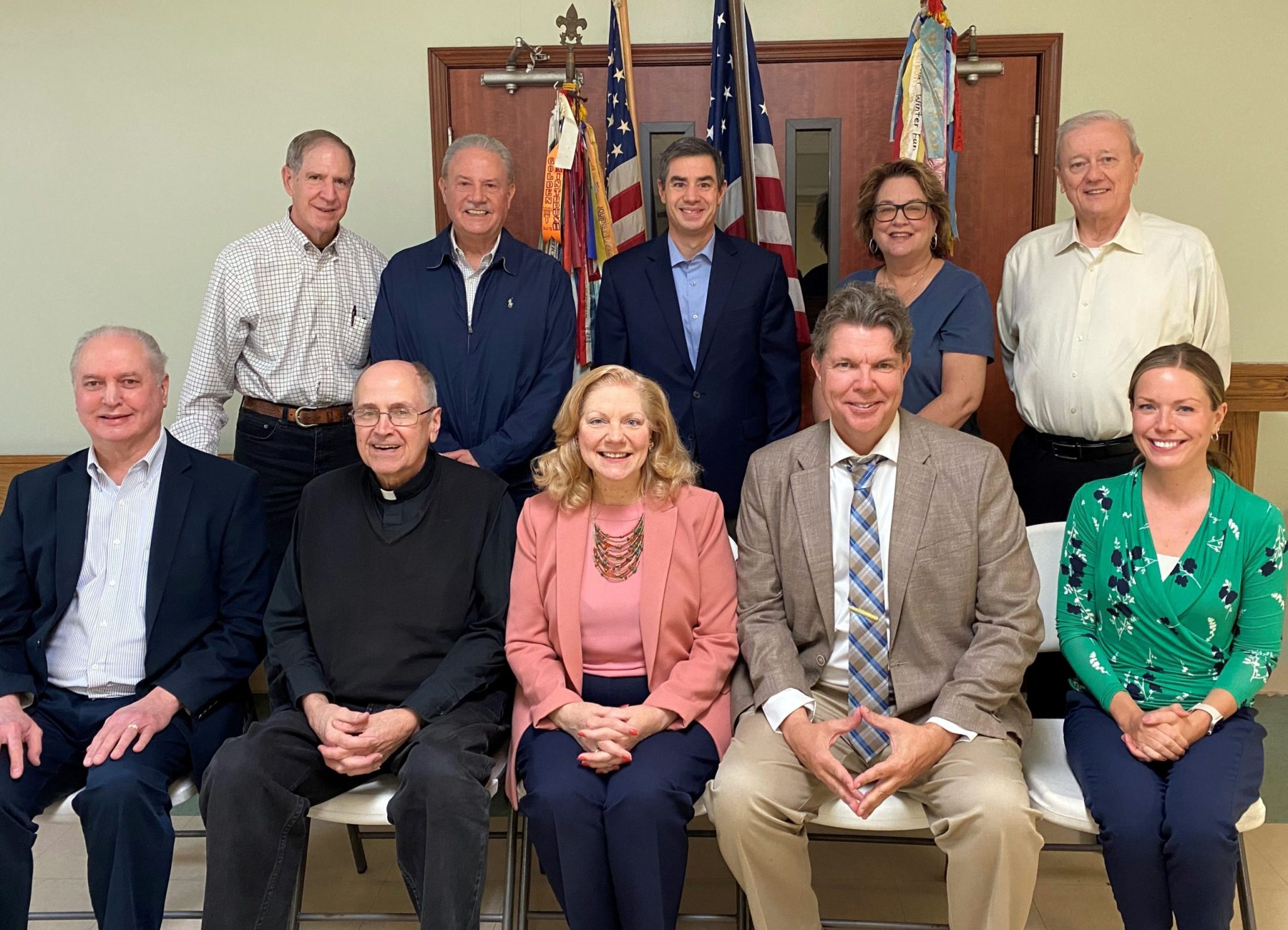
The St. Vincent de Paul Kitchen in Wilkes-Barre will be kicking off its annual “Sponsor For A Day” campaign on June 1.
For $125, one can sponsor the day’s meal at St. Vincent de Paul Kitchen and help provide meals to those in need. The sponsorship can be from oneself, a family, in memory of a loved one, or on behalf of a business. Sponsors are recognized each day on the “Sponsor For The Day” draw-board in the Kitchen as well as on the Kitchen’s Facebook page. Past sponsors will be receiving letters asking for renewals during the week of June 1-7. New sponsors may call (570) 829-7796 for more information.
To follow St. Vincent de Paul Kitchen on Facebook, visit www.facebook.com/stvincentkitchen

A Baccalaureate Mass was held on Sunday, May 19 (Pentecost) at Sacred Heart of Jesus Church, Peckville.
High school seniors from Valley View, Mid-Valley, Holy Cross, Scranton Prep, and Lakeland received a special blessing as they celebrate their accomplishments and transition to a new chapter of life.
The Pastor, Fr. Andy Kurovsky was assisted by Deacon Jerry Carpenter of Queen of Angels Parish, Jessup. The soon-to-be graduates participated as lectors, cantors, choir, presentation of the gifts, and collection volunteers.
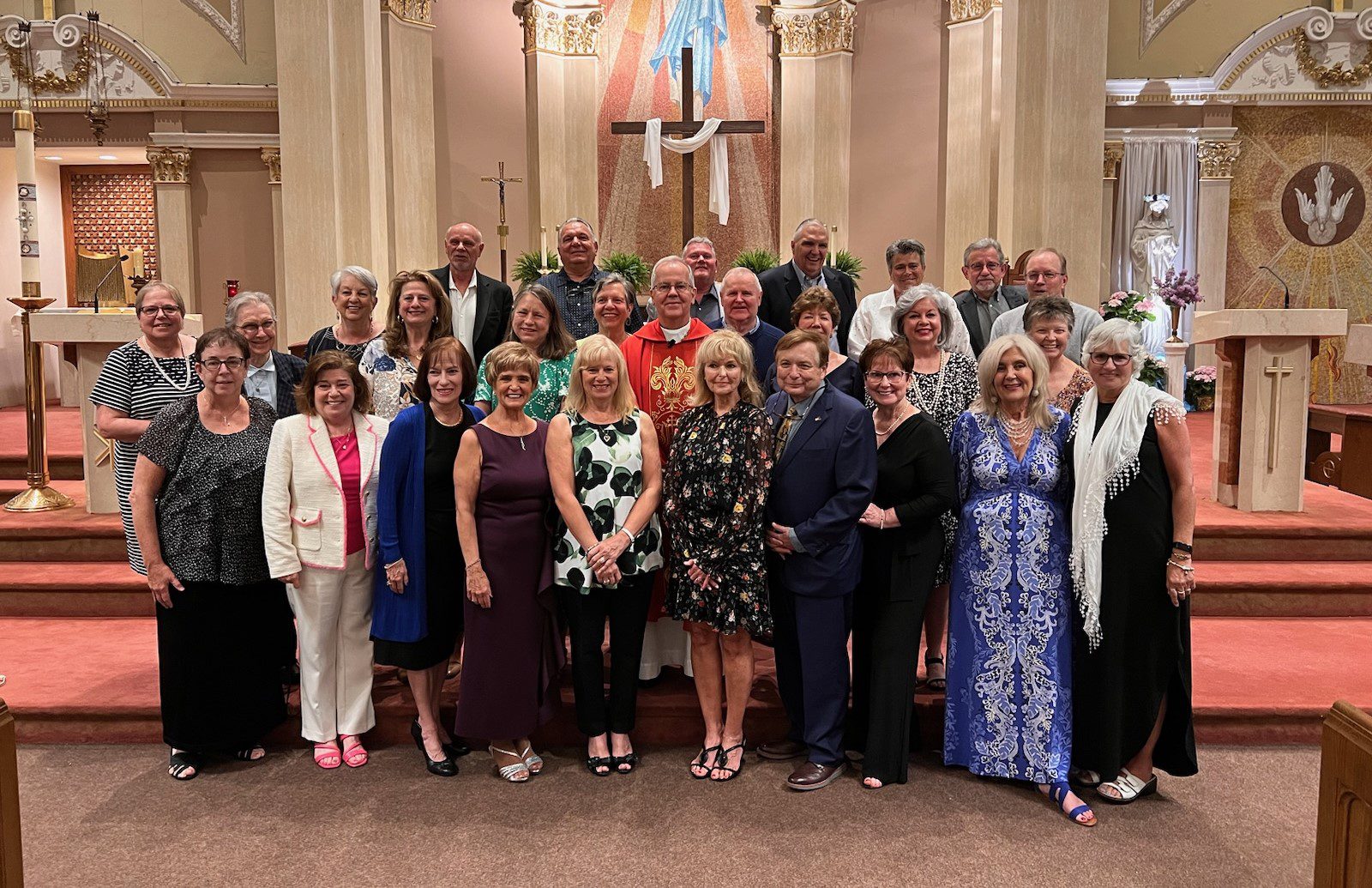
Saint Rose High School Carbondale PA class of 1974 celebrated their 50th class reunion starting with a mass celebrated by their classmate, the Most Reverend Bishop Joseph C Bambara Saturday May 18th at Saint Rose of Lima Parish.
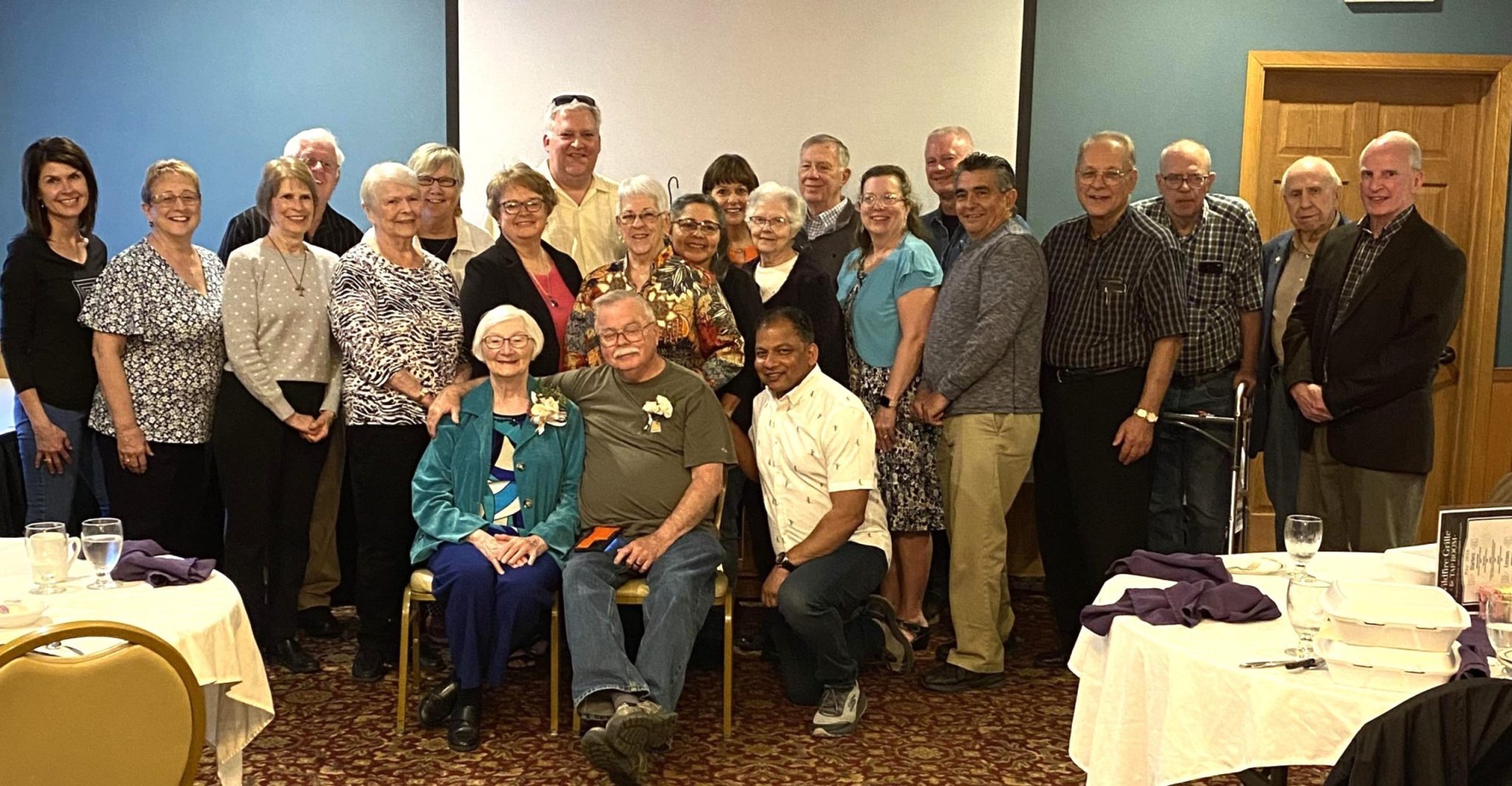 The Parish Council of SS. Peter and Paul Catholic Church in Towanda, PA, along with current pastor Father Jose Kuriappilly and former pastor Father Ed Michelini recognized the retirement of Mary Pfeffer, office administrator of the parish. Mary Pfeffer and her husband George Rogers were thanked for their faithfulness to the church, willingness to go above and beyond and for their compassion and kindness shown toward parishioners. A dinner celebration was held at the Wildfire Grill on May 9 , 2024 with council spouses in attendance.
The Parish Council of SS. Peter and Paul Catholic Church in Towanda, PA, along with current pastor Father Jose Kuriappilly and former pastor Father Ed Michelini recognized the retirement of Mary Pfeffer, office administrator of the parish. Mary Pfeffer and her husband George Rogers were thanked for their faithfulness to the church, willingness to go above and beyond and for their compassion and kindness shown toward parishioners. A dinner celebration was held at the Wildfire Grill on May 9 , 2024 with council spouses in attendance.
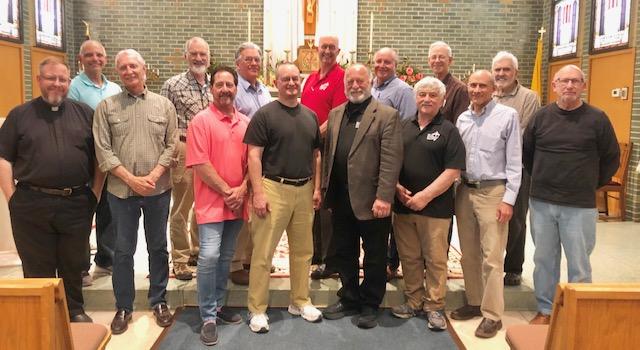
Shown are committee members for ‘Be A Catholic Man’ who recently gathered to plan for its ninth annual Catholic Men’s Conference. This year’s theme will be ‘Come Follow Me’. The event will be held at Holy Redeemer High School, 159 S. Pennsylvania Ave., Wilkes-Barre, Pa., Saturday, October 5th, 2024, from 8 am to 3 pm.
Nationally known speakers will be: Deacon Harold Burke-Sivers, John Edwards, Father Bill Casey, and concluding with Mass Offered by Bishop Joseph Bambera. These informative talks are conducive for fathers and sons, clergy, and men of every age.
Register for the conference online at www.BeACatholicMan.com or by mail to: “Be A Catholic Man”, PO Box 669, Wyalusing, Pa. 18853. (Please write “Men’s Conference” on the check memo and include ones contact info, e-mail, and Parish.) The cost is $40.00 ($30.00 if mailed by Sept. 15th). Students are $15.00. Priests, Deacons and Seminarians are free.
For more information, see www.BeACatholicMan.com or call 570-721-0872.
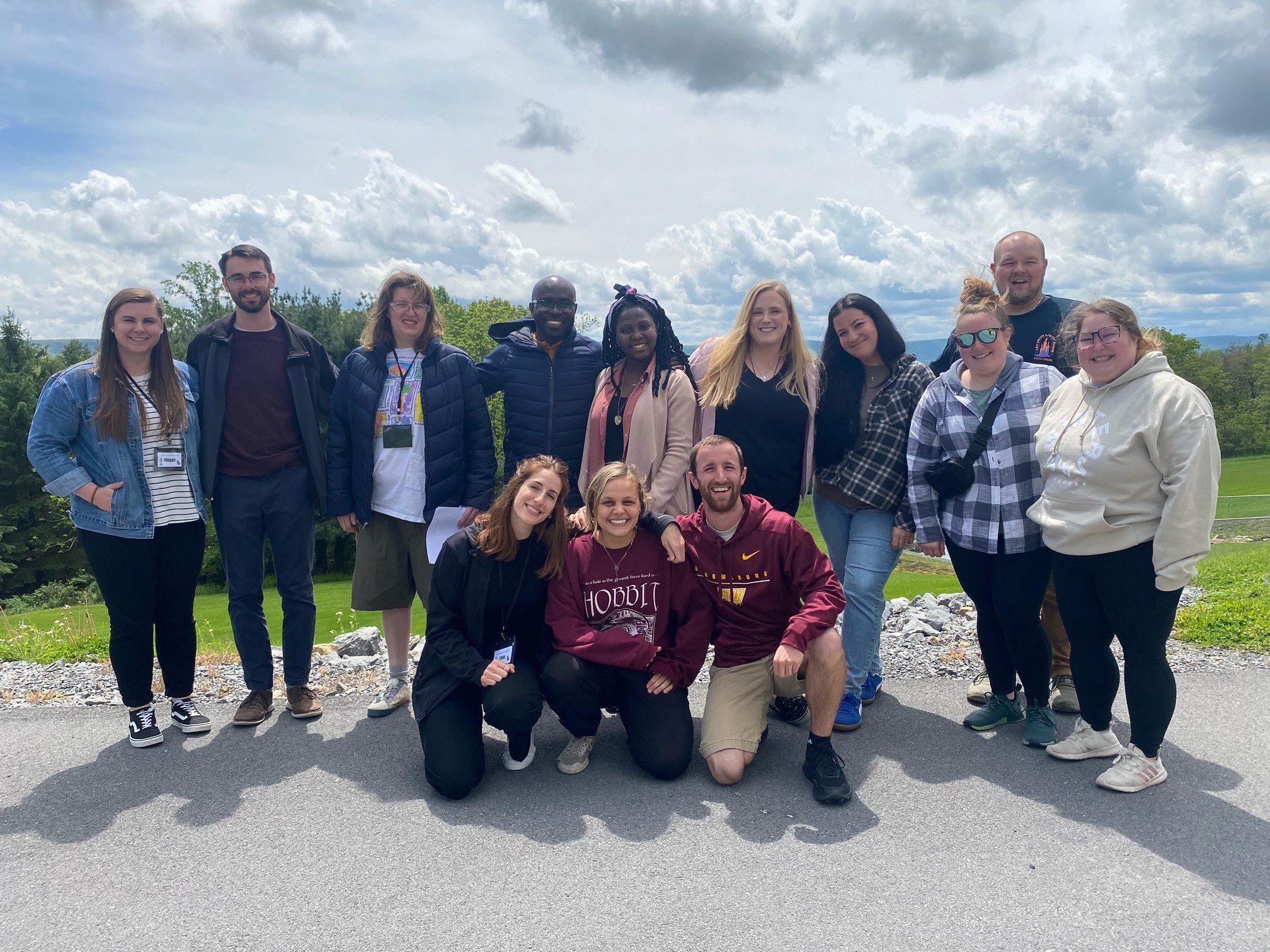
On Saturday May 11th the Lycoming County Catholic Young Adults Group hosted a silent retreat at Immaculate Conception Catholic Church in Bastress, PA. The day was filled with presentations by Fr. Bert Kozen and the Capuchin Sisters of Nazareth on Meeting Christ through Mary, as well as periods of silence for reflection and prayer. The day ended with a Tazié mass and fellowship. Thank you to all who attended!
For anyone interested, the Lycoming County Catholic Young Adults Group meets every Wednesday at 7:00pm in the St. Joseph the Worker Admin Building in Williamsport.
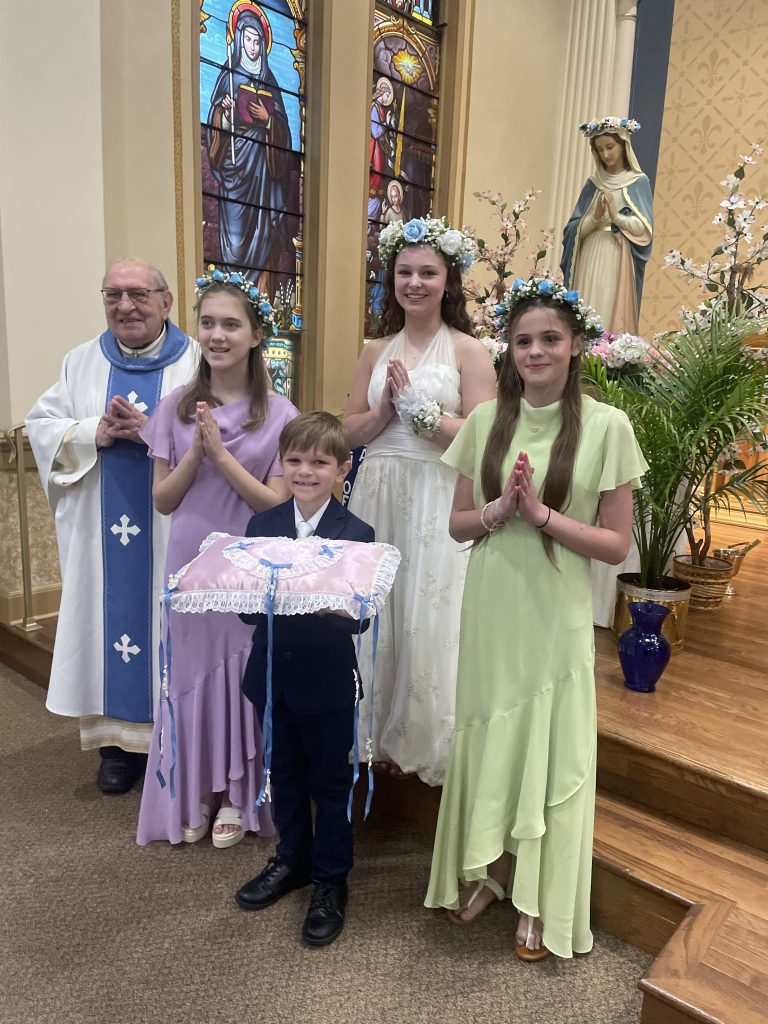
Queen of the Apostles Parish held its May Crowning of the Blessed Mother following the 10 a.m. Mass on Sunday, May 5, at the church, 715 Hawthrone St., Avoca.
The Rev. Joseph Sibliano, OSJ, and Deacon Jim Rose led the prayerful service.

